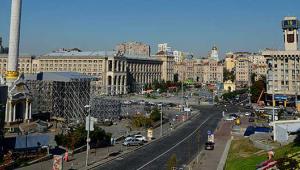kampala-uganda-shutterstock_164288480.jpg

Kampala, the capital of Uganda
The international lenders said yesterday that shifting public spending towards infrastructure would stimulate growth and plug a huge deficit in sectors like energy and transport especially.
However, many planned investments in the country had yet to be completed, dampening their effect on economic activity and resulting in slow growth.
If the government can deliver more projects on time, the returns on the public sector investment in these schemes will be higher, the institutions continued.
Christina Malmberg-Calvo, World Bank country manager for Uganda, said this would improve value for money for taxpayers.
“It is therefore important to invest in the country’s ability to invest by transforming the public investment programme into a system that better increases the value derived from public investment.”
In its Uganda Economic Update, the bank said the investment management system should be capable of efficiently and effectively delivering critical infrastructure on schedule as well as to tap into new opportunities to finance human capital development.
It called on the government to undertake more careful scrutiny of investments and to improve the evaluation of projects to help future project selection and risk identification.
A combination of poor investments and a weak economic environment, further exacerbated by the crash in oil and commodity prices, have led to below par growth in Uganda.
A growth rate of 4.5-5% over fiscal year 2015/16 is slower than the 5.4% expected by the World Bank in its last economic update, and trails other east African countries such as Rwanda and Tanzania, both at 7% growth, and Kenya at 6%.
The IMF also noted that key structural economic reforms have also lagged in the country, leaving improvements to competitiveness, progress towards inclusive growth and economic diversification in stasis.
It called for the “prompt approval” of the country’s Public Financial Management Act by parliament, which will bring regulations in line with best practice, as well as finalising a charter on fiscal responsibility, reconciling domestic arrears and boosting domestic revenue mobilisation.
These are “paramount steps to further improve governance and strengthen the budget process,” said Min Zhu, deputy managing director and acting chair of the IMF’s executive board.
Other recommendations included moves to improve central bank independence, prevent money laundering and improve the climate for investors.
The IMF’s executive board approved a one-year extension of a programme to monitor, support and provide advice to Uganda as it undertakes structural reforms. It does not include any financial assistance.
Elsewhere in Africa, last week the World Bank announced $300m in concessional credit to improve urban transport in Ethiopia and a $56m loan to enhance the efficiency of health service delivery in Gabon.













